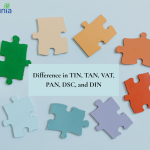Who is Eligible for Partnership in India?
Partnerships are the lifeblood of most industries in India and provide a platform for cooperation for people and entities to achieve common goals. But no one is eligible to be a partner in all kinds of partnerships. A person can be a partner under the Indian Partnership Act of 1932 and as defined in certain parts of the Income Tax Act of 1961. The analysis covers eligibility for partnership firms in India and how the partnership applies under Indian law and tax guidelines.
Types of Partnerships in India
1. Business Partnerships
- Regulated by the Indian Partnership Act of 1932, and the Limited Liability Partnership Act of 2008 (for LLPs).
- General partnerships and Limited liability partnerships (LLPs) do not apply to Limited partnerships.
- They may be partners: persons, Hindu Undivided Families (HUFs), companies, or trusts.
- The tax liability of a business partnership is governed by Section 28 of the Income Tax Act, 1961, and any other applicable provisions.
2. Nonprofit and Social Impact Partnerships
- Partners can be private companies, the government, or nonprofit organizations.
- Many partnerships are interested in delivering social or environmental value rather than financial returns.
- Registration u/s 12A and 80G of the Income Tax Act may be required for tax exemptions.
3. Strategic Business Alliances
- Requires shared engagement between companies with common objectives, such as market development or innovation.
- Consortia members would be obliged to adhere to the Indian Contract Act of 1872 and relevant sections of the Income Tax Act.
4. Family and Informal Partnerships
- Usually created among family or community members.
- Regulated by the Indian Partnership Act, but may also be executed under informal arrangements.
Eligibility Criteria for Partnership
1. Legal Capacity
- Individuals: According to the provisions of the Indian Contract Act, 1872, a person has to be at least 18 years and in a sound state of mind to enter a partnership.
- Entities: A legally created company, HUF, or trust can team up as a business partner.
- Restrictions: A partner must not be someone who is insolvent or who may be barred by law.
2. Shared Goals and Values
- Partners must agree on shared objectives, whether profit-oriented or socially driven.
- For business partnerships, profit-sharing ratios should comply with Indian tax regulations.
3. Contribution of Resources and Expertise
- Partners are expected to bring in financial capital, intellectual property, technical expertise, or access to the market.
- The contributions are to be enforced and subjected to auditing based on the provisions of the Income Tax Act relating to the declaration of income.
4. Commitment and Accountability
- Partners need to demonstrate their readiness to invest time, labor, or resources as agreed upon.
- Accountability further implies adherence to the tax filing obligations as provided under Sections 139 and 44AD of the Income Tax Act.
5. Financial Standing
- It has always been crucial to have a good financial status.
- It is possible that you will have to show proof of cleared taxes along with financial statements that have been audited.
6. Reputation and Ethics
- Legal and financial issues need to be fully addressed.
- Businesses need to go through background checks and comply with the rules set by SEBI and RBI.
7. Compliance with Tax and Regulatory Frameworks
- The business should comply with provisions like GST registration (if applicable) and TDS obligations under Section 194 of the Income Tax Act.
- Partnerships with a cross-border profile ought to give effect to compliance under FEMA.
Special Cases and Considerations in India
1. Family Partnerships
- The family partnership often creates restrictions on membership for only close relatives.
- In respect of taxation, family partnerships must comply with Section 64 of the Income Tax Act to avoid the clubbing of income.
2. Minority and Women-Owned Partnerships
- State subsidies grant special eligibility to women/minority-owned establishments.
- Certifications such as “Women-Owned Business” or benefits derived from “Start-Up India” could be involved.
3. Startups and Emerging Entrepreneurs
- Partnerships must show an innovative essence and scalable nature to attract investments.
- Section 80-IAC of the Income Tax Act renders benefits to the startups that qualify.
4. Cross-Border and International Partnerships
- Partners have to comply with Indian tax umbrellas, double taxation avoidance agreements (DTAs), and RBI guidelines.
- International transactions would be covered under transfer pricing regulations as per Section 92 of the Income Tax Act.
Get Started with TaxDunia
There are many legalities, finances, and operations involved in eligibility for partnership in India. People and entities can form partnerships according to their desired goals under the guidance of the Indian Partnership Act, 1932, and the Income Tax Act of 1961 while complying with the laws. However, proper assessment of eligibility not only allows smooth operation from the beginning but also increases the chances of growth and success in the preferred venture.








